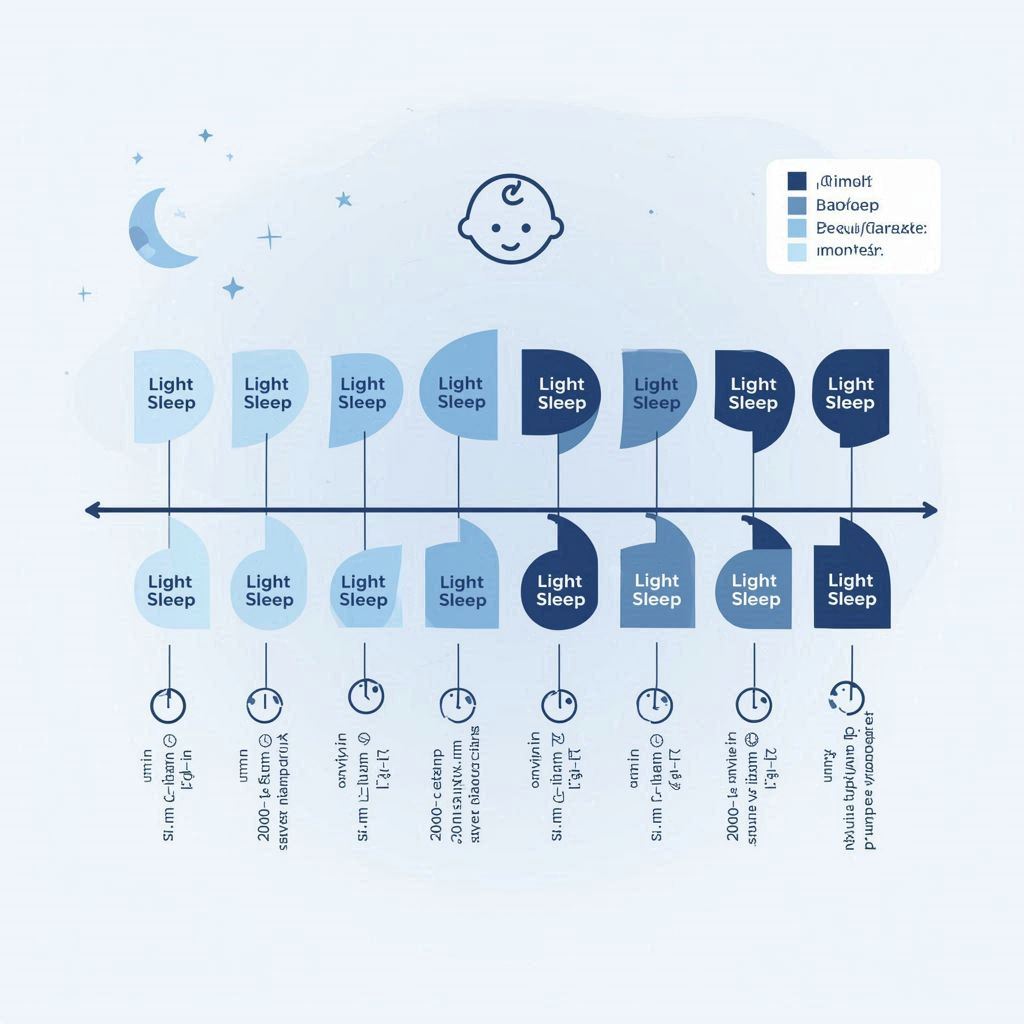If you’re reading this, chances are you’re running on very little sleep, and I’ve been there too. When my baby was born, I thought I’d prepared for everything… except for the endless nights of rocking, feeding, and soothing. It wasn’t until I learned how to create a proper baby sleep schedule that everything changed.
This isn’t just theory; it’s a real routine that helped my little one sleep through the night, and gave me back my sanity.
Understanding Baby Sleep Patterns
Before I could fix my baby’s sleep issues, I had to understand why babies wake up so often. Unlike adults, babies have shorter sleep cycles, they move between light and deep sleep quickly. That means they can wake up more frequently, especially during the first few months.
But here’s the good news: with the right baby sleep schedule and consistency, your baby can learn to sleep for longer stretches.

Step 1: Follow Age-Appropriate Wake Windows
Every baby has a limited amount of time they can stay awake before becoming overtired. Once they’re overtired, it’s harder for them to fall asleep.
Here’s a simple guide:
| Baby Age | Wake Window (approx.) |
|---|---|
| Newborn (0–2 months) | 45–60 minutes |
| 3–4 months | 1–1.5 hours |
| 5–6 months | 2 hours |
| 7–10 months | 2.5–3 hours |
| 11–12 months | 3–4 hours |
Once I started paying attention to these wake windows, naps became easier, and bedtime battles decreased dramatically.
Step 2: Set a Consistent Bedtime Routine
Consistency is your best friend when it comes to baby bedtime tips. Babies love predictability, it tells them that sleep time is coming. My baby’s bedtime routine looked like this:
- Bath time with warm water
- Soft baby massage with gentle lotion
- Dim the lights and play lullabies
- Feed or nurse
- Rock gently or cuddle before laying in the crib.
Repeating this every night helped signal to my baby that it was time to wind down.

Step 3: Create the Right Sleep Environment
The environment plays a huge role in helping your baby stay asleep.
Here’s what worked for me:
- Keep the room dark and quiet
- Maintain a comfortable temperature (around 20–22°C)
- Use white noise to block background sounds
- Make sure the crib is safe, no pillows or loose blankets
Even small changes like these made a noticeable difference in how long my baby slept.
Step 4: Don’t Rush In Too Quickly
When your baby stirs or makes noises in the middle of the night, give them a minute or two before rushing in. Sometimes babies can fall back asleep on their own.
At first, this was tough, I always wanted to pick my baby up immediately. But once I waited a little, I realized that most of the time, my baby was just transitioning between sleep cycles.
Step 5: Daytime Naps Matter Too
Good sleep during the day leads to better sleep at night.
I learned this the hard way; skipping naps only made bedtime worse. A structured nap routine helps your baby’s body clock stay balanced.
Try these tips:
- Keep nap times around the same hour daily.
- Use the same pre-nap cues (soft music or dim lights).
- Avoid overtiredness; babies need rest before they reach that cranky stage.

The Night Everything Changed
I remember one night after weeks of exhaustion, I decided to stick to the sleep schedule no matter what. By 7:30 PM, the lights were dim, the lullaby was playing, and my baby was in bed.
For the first time, he slept for six straight hours. I woke up before him, confused but relieved. That was the moment I realized theschedule really works.
From that night on, things only got better.
Final Thoughts
Creating the perfect baby sleep schedule isn’t about strict rules — it’s about gentle consistency and understanding your baby’s cues. Every child is different, so don’t stress if progress takes time.
Stick with it, stay calm, and soon you’ll be the one sharing your own “how I finally got my baby to sleep” story.
FAQs
1. What is the best bedtime for babies?
Most babies sleep best when they go to bed between 7 PM and 8 PM, depending on nap length and age.
2. Should I wake my baby for feedings?
For newborns, yes, feed every 2–3 hours. Once your baby gains steady weight, consult your pediatrician about letting them sleep longer stretches.
3. What if my baby wakes up crying every night?
It’s normal. Focus on consistent bedtime routines and gentle reassurance instead of starting new habits (like rocking to sleep every time).
4. How long does it take to see improvement?
Usually within one to two weeks of maintaining a consistent sleep routine.


Leave a Reply